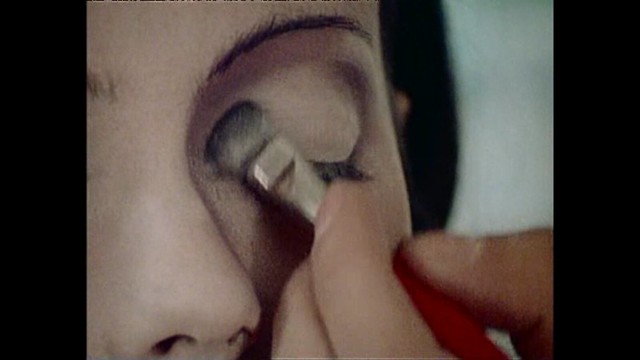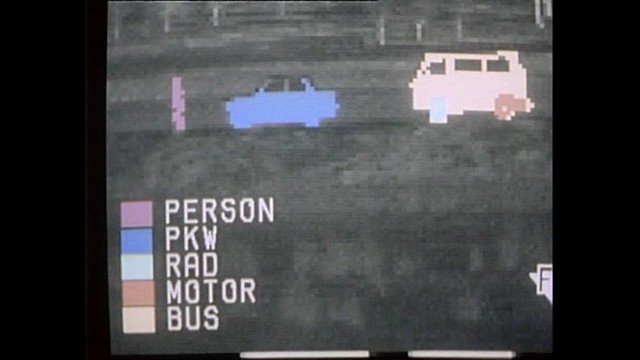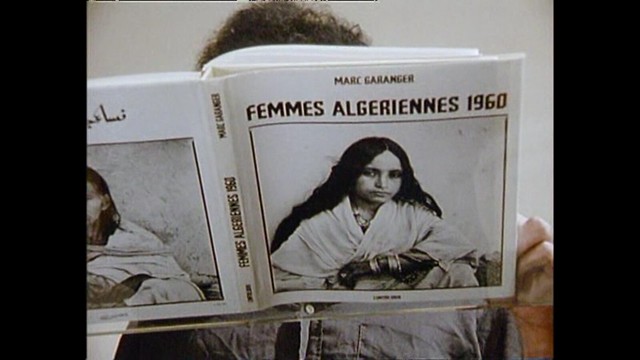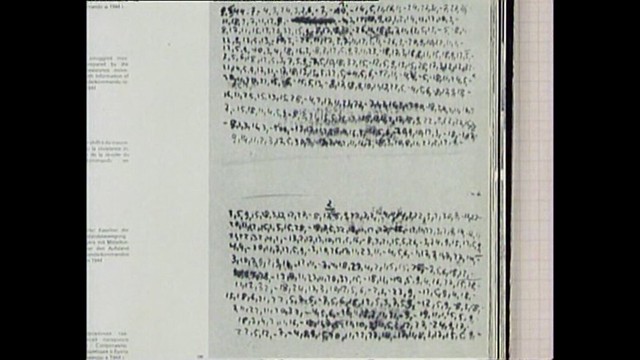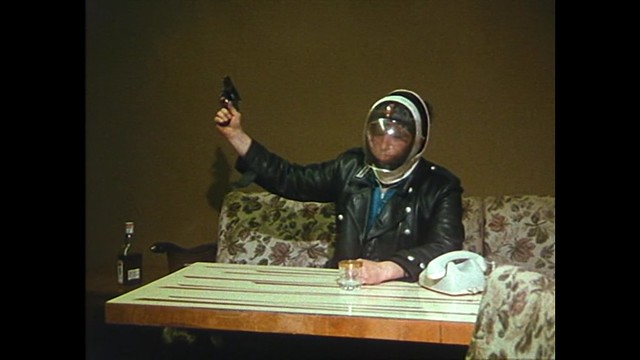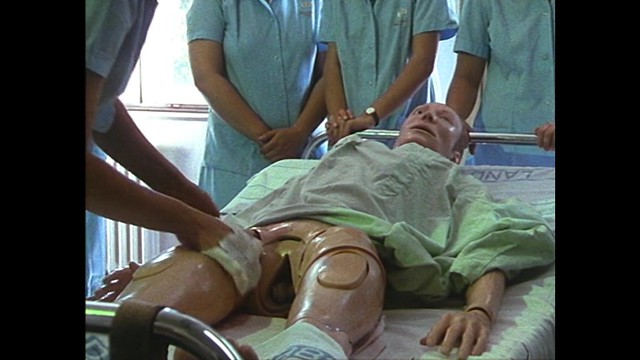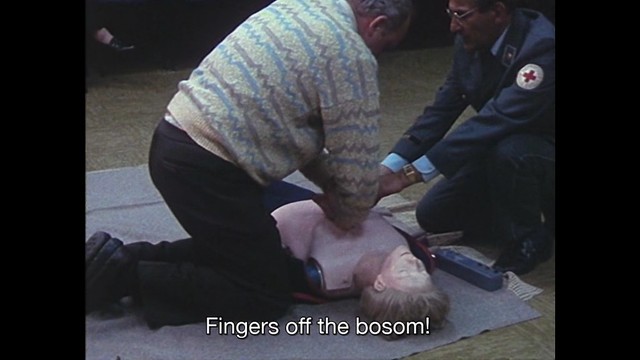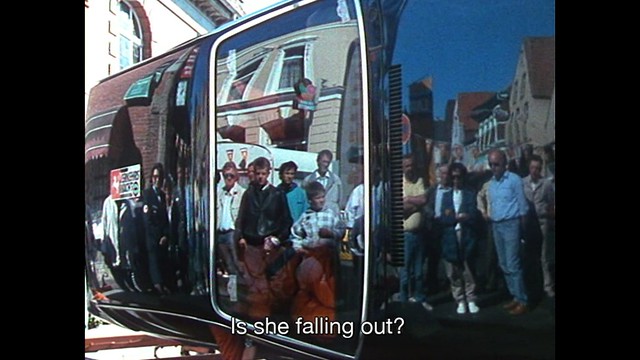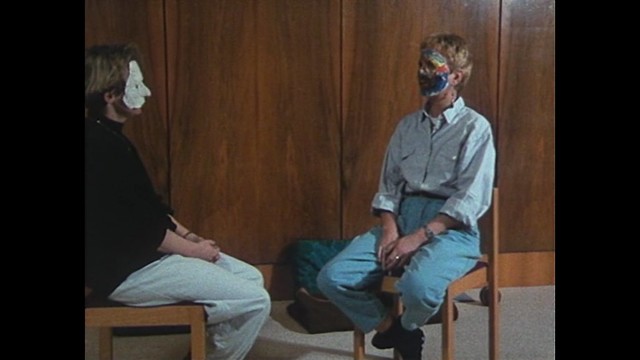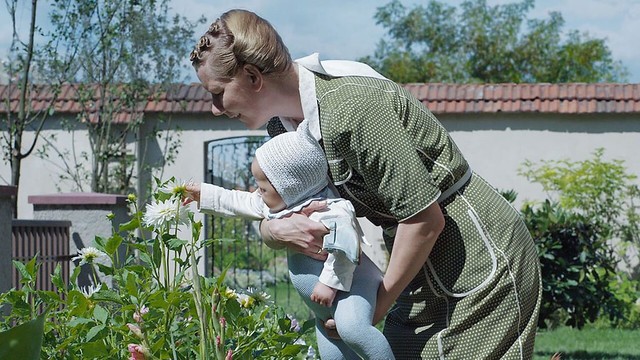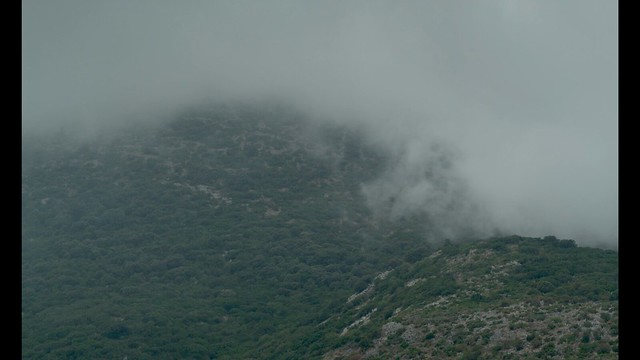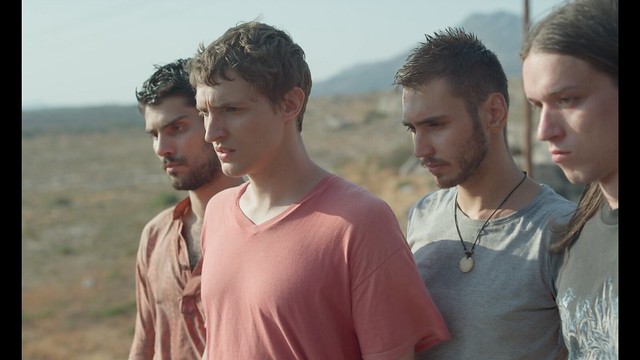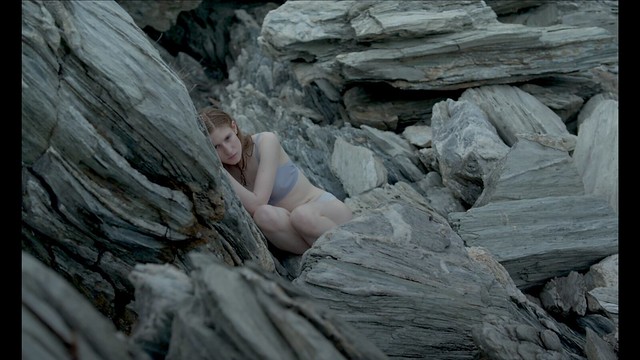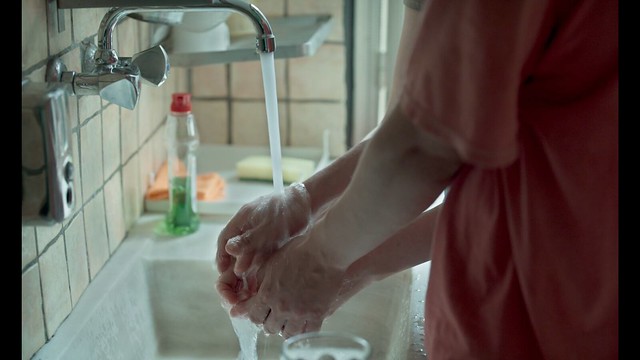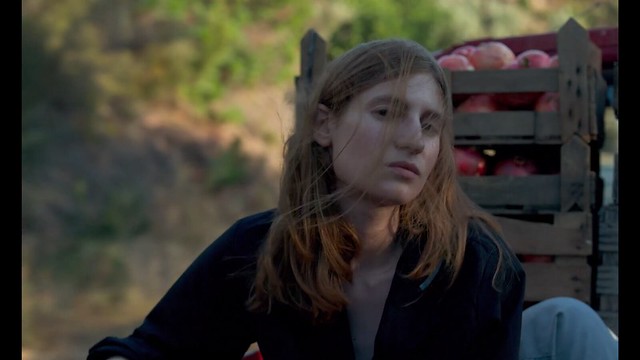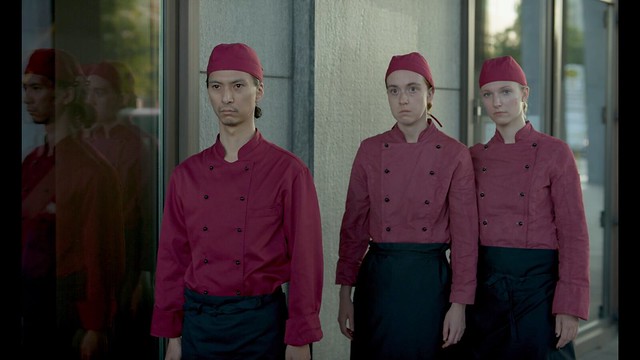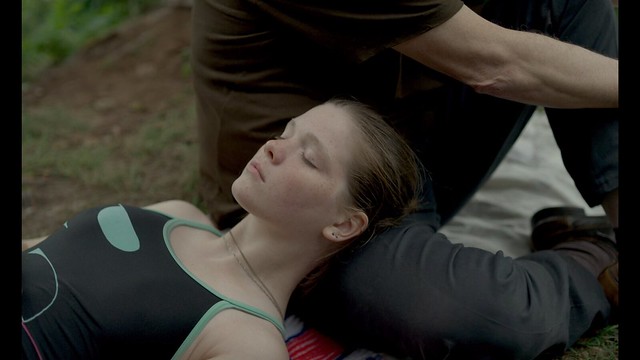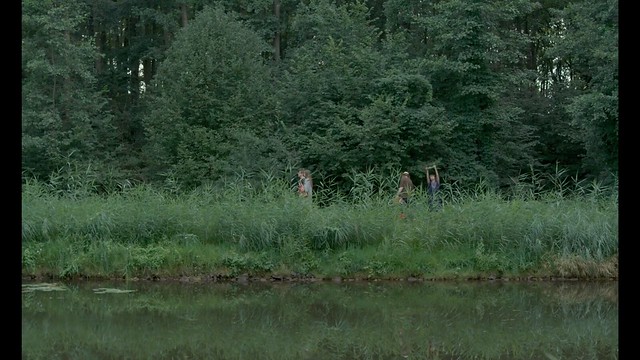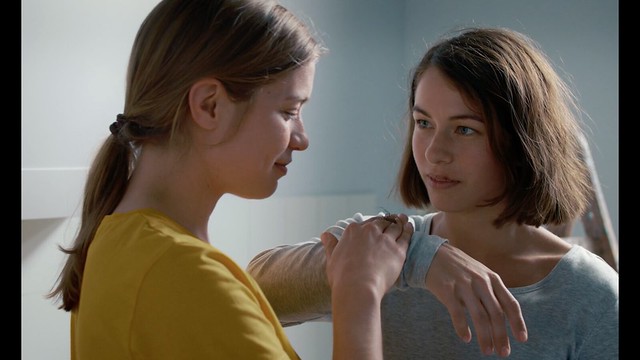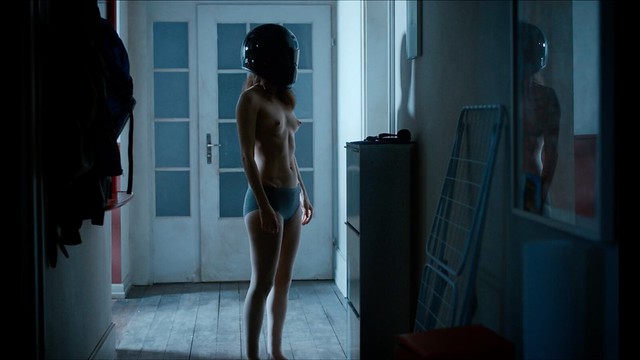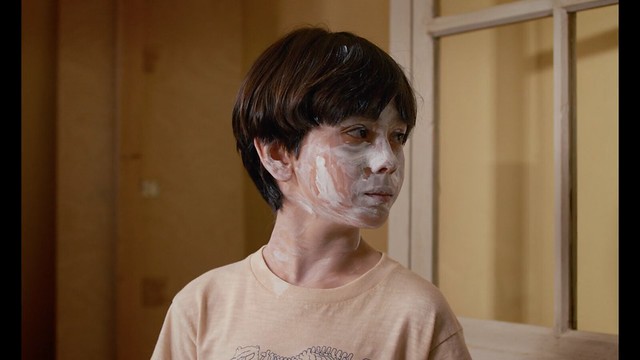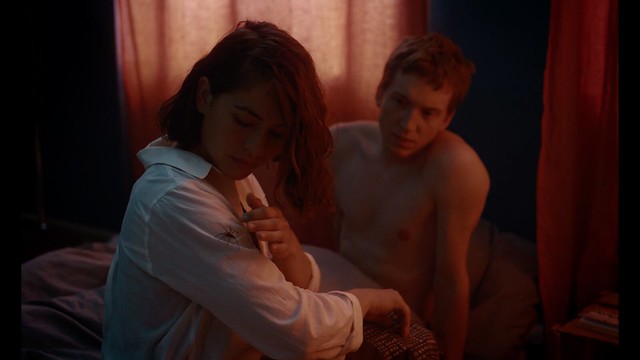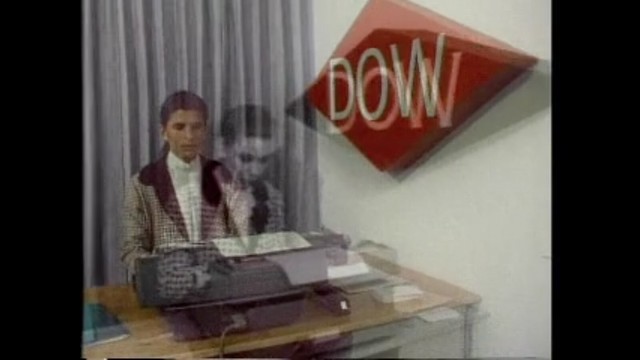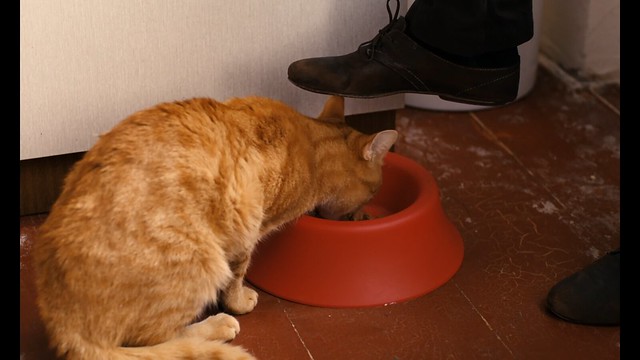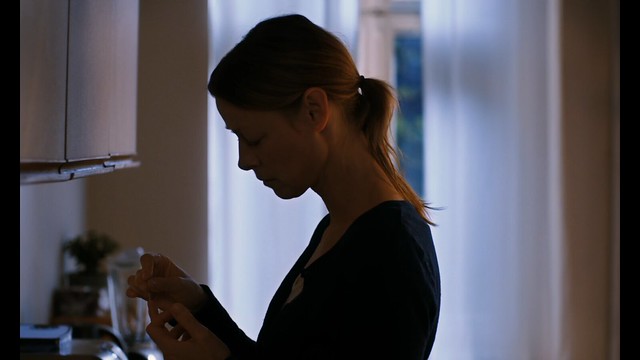 German filmmaker Mehmet Akif Büyükatalay's Hysteria touches upon sensitive subjects in modern day, multicultural Germany: racism and representation. The film plays out like a tense thriller until it morphs into a chamber drama where the identity politics within the immigrant community are dissected and hotly debated. Hysteria might not be as subtle as fellow Turkish descendent filmmaker Thomas Arslan (A Fine Day)'s work, or as flashy as Fatih Akin (Head-On)'s, but the film is more direct and piercing in dealing with the complex subject matter. The plot sometimes feels clunky and forced as it gets tangled up in its own intricate web, and the seemingly important loose ends don't tie up neatly by the end. But Hysteria is an anxiety inducing pressure cooker of a film that concludes with the literal fiery end.
German filmmaker Mehmet Akif Büyükatalay's Hysteria touches upon sensitive subjects in modern day, multicultural Germany: racism and representation. The film plays out like a tense thriller until it morphs into a chamber drama where the identity politics within the immigrant community are dissected and hotly debated. Hysteria might not be as subtle as fellow Turkish descendent filmmaker Thomas Arslan (A Fine Day)'s work, or as flashy as Fatih Akin (Head-On)'s, but the film is more direct and piercing in dealing with the complex subject matter. The plot sometimes feels clunky and forced as it gets tangled up in its own intricate web, and the seemingly important loose ends don't tie up neatly by the end. But Hysteria is an anxiety inducing pressure cooker of a film that concludes with the literal fiery end.
Hysteria starts with an arson, a staged one: it is revealed in a long zoom out that the house being torched is in a giant film stage. The film director Yigit (Serkan Kaya) interjects and gives the context to the image - it's the reflection of the arson attacks that took place in Germany in the 90s by the ultra right-wing groups against Muslim immigrant communities that killed hundreds of innocent people. What Yigit is trying to capture is immigrant non-actors’ emotions, going through the aftermath of the arson attack. These extras are culled from a local refugee center for authenticity's sake. After the shoot, it is revealed that the copy of Quran is burned along with other household items during filming and some of the extras are upset. One of them, Majid, walks off the set. So, the driving duty falls on a young and eager intern Elif (Devrim Lingnau). She has to drive extras back to the refugee center and drop off the film negatives (the project is shot on film) to an apartment that belongs to the film's producer Lilith (Nicolette Krebitz) who is also well known, respected filmmaker herself.
Elif has a healthy discussion with the extras about what the project is about on the way back to the refugee center. Mustafa (Aziz Çapkurt), himself a theater director back home, thinks Yigit is just perpetuating the victimhood on screen, which has been long prevalent in German cinema - so called "Gasterbeiter (Guestworker) Cinema" or "Cinema of Duty" of the 70s and 80s. These are the films the white liberals can have their conscience clear and make them feel good after viewing. Others disagree, including Elif, a university student with a Turkish immigrant father, who thinks the film is saying something important.
After Elif drops them off, she arrives at Lilith's but realizes that she lost the keys to the apartment. After calling a locksmith, she places several fliers about missing keys around the neighborhood. But she conceals the lost key incident to Lilith for some reason. This little deceit snowballs into full blown paranoia when she gets text messages about the lost keys from a stranger. The texts, with bad grammar and their profile picture and their social media linked to some scary looking Muslim extremist group, Elif, sufficiently freaked out, calls Said (Medhi Meskar), a young immigrant who was an extra in Yigit's film and tells him what's been happening. When Yigit and Lilith come back, to Elif's dismay, they find the footage that contains the burning Quran is gone. Someone broke into the apartment and lifted the footage. Yigit, furious and suspects the extras and calls cops on them. Mustafa, Said and Majid all deny any involvement in wrongdoing.
Lilith, who wasn't fan of the footage and in fear of controversy, convinces Yigit to file a theft insurance claim and reshoot the scene without Quran. The problem solved. But for Elif, the problem is far from solved. She confronts Lilith and Yigit with Mustafa, Said and Majid, and asks for an apology. This is where things get a little shaky in terms of narrative contrivances. While I appreciate the need of seeing frank discussions about how people perceive others and others perceive themselves, class disparities, 'write what you know,' etc., but nothing really gets sorted out in Hysteria. The jarring tonal shift, untied loose ends, underdeveloped motivations and obvious symbolism (not only Quran but actual negative film catches fire at the end) devolve into a melodrama. Büyükatalay has a knack for making an anxiety inducing thriller. But issues don't necessarily get solved themselves even when they are screamed out loud for everyone to hear.









